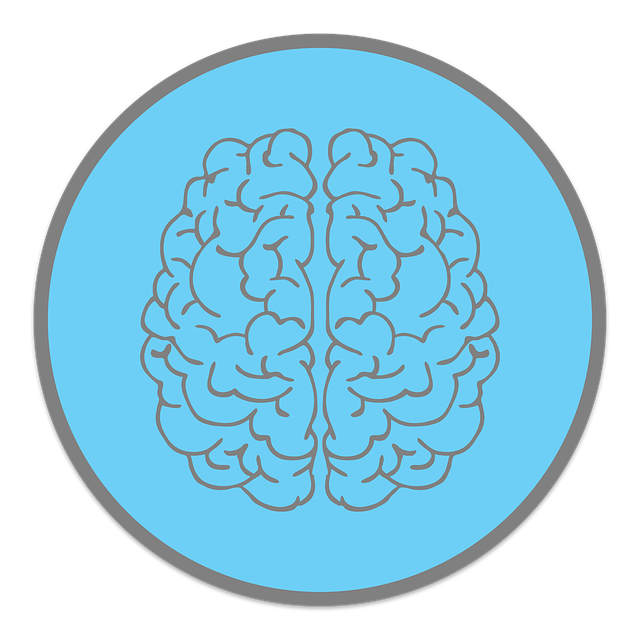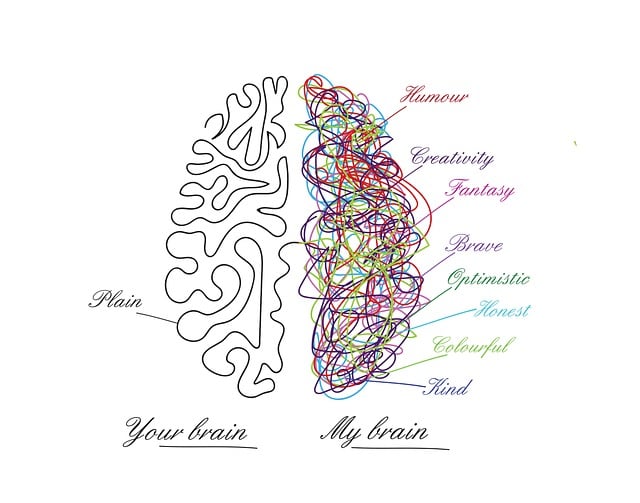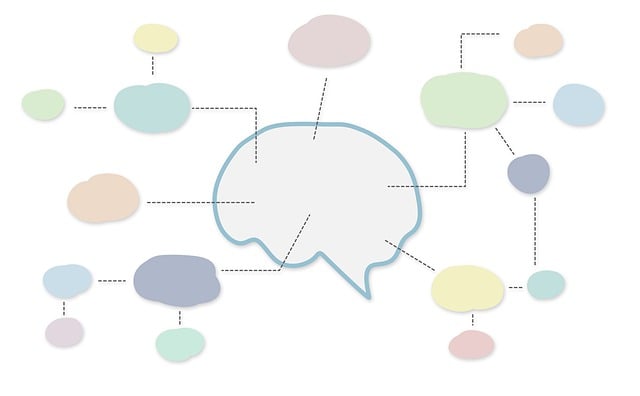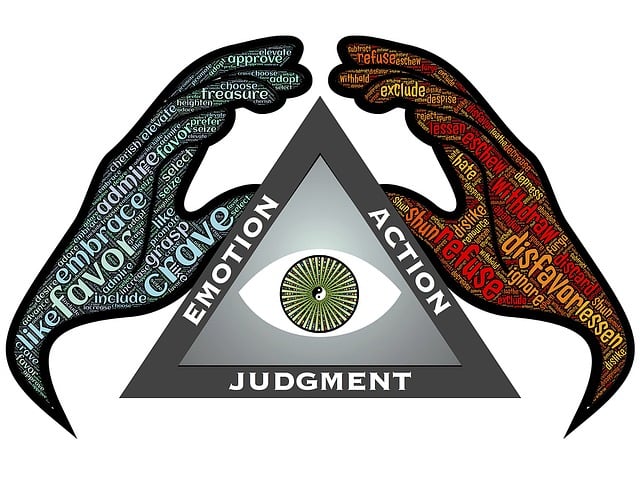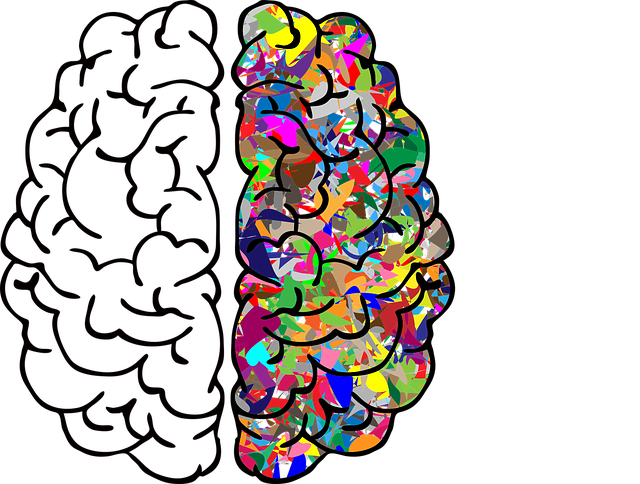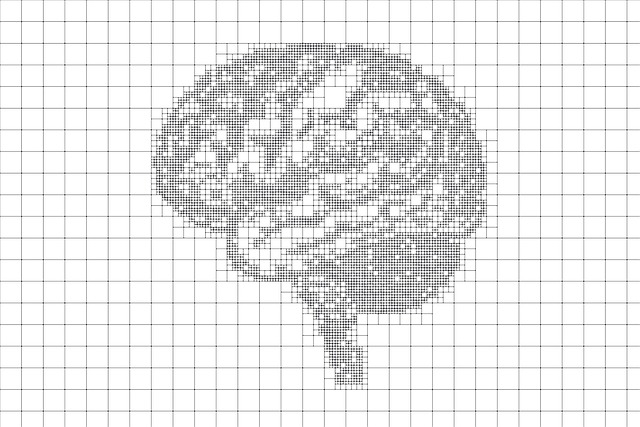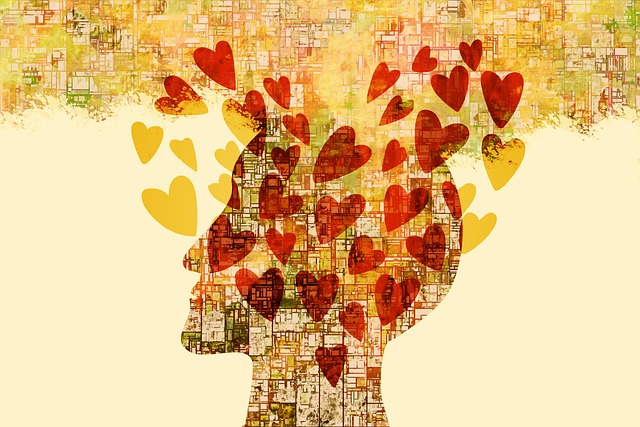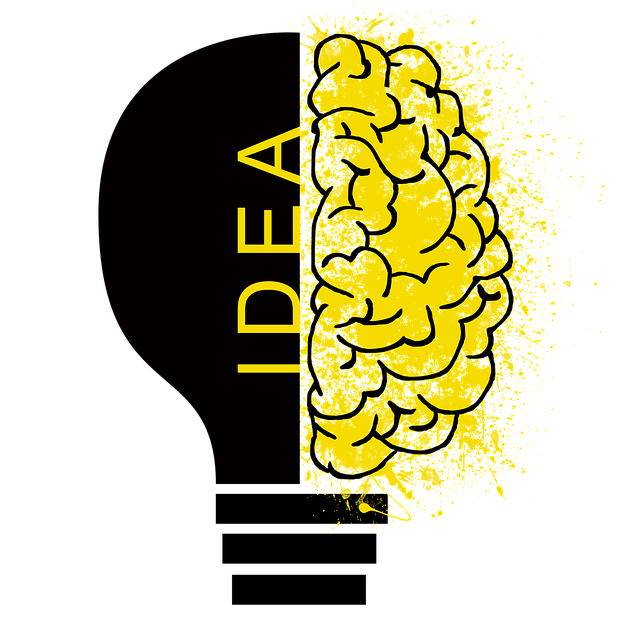Life and Mind Psychology: Unlocking the Complexities of Human Experience
Introduction
In an increasingly interconnected world, understanding the intricate interplay between life and mind has become a cornerstone in various disciplines, from healthcare and education to business and technology. Life and Mind Psychology is a multifaceted field that delves into the complex relationship between human experiences, behaviors, and mental processes. This comprehensive article aims to guide readers through the vast landscape of this discipline, exploring its historical foundations, global impact, economic implications, technological innovations, regulatory frameworks, and future directions. By the end, readers will gain a profound appreciation for the far-reaching influence of Life and Mind Psychology and its potential to shape our world.
Understanding Life and Mind Psychology: Unraveling the Complex Web
Definition: Life and Mind Psychology is an interdisciplinary field that explores the psychological aspects of human life experiences, encompassing cognitive, emotional, and behavioral processes. It examines how individuals interpret and interact with their environment, focusing on the mind’s role in shaping our perceptions, thoughts, and actions. This discipline draws from various schools of thought, including cognitive psychology, humanistic psychology, existentialism, and neuro-science, to provide a holistic understanding of the human condition.
Core Components:
- Cognitive Processes: Understanding how individuals process information, form memories, and make decisions is central to Life and Mind Psychology. This includes studying attention, perception, language, problem-solving, and critical thinking skills.
- Emotional Wellbeing: Exploring the role of emotions in guiding human behavior and their impact on mental health is a key aspect. Researchers investigate emotional intelligence, stress management, resilience, and the interplay between positive psychology and overall well-being.
- Behavioral Patterns: This field analyzes why individuals exhibit certain behaviors, including social interactions, learning processes, motivation, and goal-oriented actions. It also delves into abnormal behaviors and their underlying causes.
- Mind-Body Connection: Recognizing the intricate relationship between mental and physical health, this discipline examines how mindsets and emotions can influence physiological responses and vice versa.
- Cultural and Social Influences: Life and Mind Psychology considers how cultural, social, and environmental factors shape psychological experiences, leading to diverse interpretations of life events across different societies.
Historical Context: The roots of Life and Mind Psychology trace back to the early 20th century with pioneers like Sigmund Freud and Carl Jung, who laid the foundation for psychoanalysis and explored the unconscious mind. Humanistic psychologists, such as Abraham Maslow and Carl Rogers, emphasized personal growth, self-actualization, and the importance of subjective experiences. Over time, advancements in neuroscience, cognitive science, and positive psychology have further enriched this field, leading to more nuanced understandings of human behavior.
Significance: Life and Mind Psychology is significant because it offers insights into:
- Mental Health: Understanding psychological processes helps in diagnosing and treating mental health disorders, promoting overall well-being.
- Education: It informs teaching methods, curriculum design, and student learning outcomes, fostering a more effective educational environment.
- Business and Management: Knowledge of human behavior enhances leadership styles, team dynamics, and organizational culture, leading to improved productivity and employee satisfaction.
- Policy Making: Informing policies related to healthcare, education, crime prevention, and social welfare by considering psychological factors can lead to more effective societal interventions.
Global Impact and Trends: A World of Psychological Diversity
Life and Mind Psychology is a global phenomenon, yet its interpretation and application vary across cultures and regions, reflecting diverse societal values and historical contexts. Here’s an overview:
| Region |
Key Trends/Influences |
Notable Contributions |
| North America |
– Strong emphasis on evidence-based practices
– Integration of technology in therapy
– Rise of mindfulness-based interventions |
– Cognitive Behavioral Therapy (CBT) is widely practiced
– Research on neuroplasticity and brain imaging has advanced understanding of mental processes |
| Europe |
– Focus on cultural sensitivity and diversity
– Emphasis on holistic health approaches
– Strict data privacy regulations impact research practices |
– European Psychotherapy Association promotes evidence-based psychotherapy
– The concept of “well-being” is a priority in many European countries’ social policies |
| Asia Pacific |
– Increasing awareness of mental health, driven by rapid urbanization and economic growth
– Traditional Eastern philosophies influence psychological practices
– Mobile therapy apps are gaining popularity |
– China’s growing psychology industry offers unique cultural perspectives
– Japan’s concept of “Ikigai” (purpose of life) inspires research on life satisfaction |
| Middle East & Africa |
– Limited access to mental health services in many regions
– Cultural taboos surrounding mental illness create challenges
– Community-based interventions are prevalent |
– The World Health Organization (WHO) plays a crucial role in promoting mental health awareness
– Community support groups offer valuable resources in underresourced areas |
| Latin America |
– Strong social and cultural influences on psychological practices
– High rates of collective resilience due to historical hardships
– Emphasis on community-based interventions for social issues |
– The “Cura” (care) approach prioritizes holistic well-being
– Brazil’s Program of Community Health Agents has positive impacts on mental health promotion |
Key Global Trends:
- Mental Health Awareness: A growing global movement to destigmatize mental illness and increase access to mental health services, led by organizations like the WHO and various national initiatives.
- Technology Integration: The use of technology in therapy, including mobile apps, virtual reality (VR), and artificial intelligence (AI), is on the rise, offering new avenues for treatment and research.
- Cultural Sensitivity: Recognizing the importance of cultural context in psychology, there is a growing emphasis on culturally sensitive practices to address diverse populations’ unique needs.
- Holistic Health: A trend towards considering mental health as an integral part of overall well-being, leading to increased focus on mindfulness, meditation, and alternative therapies.
- Community-Based Interventions: These approaches aim to strengthen social connections and promote community resilience, particularly in regions with limited access to traditional mental health services.
Economic Considerations: The Psychology Industry’s Growth and Impact
The field of Life and Mind Psychology has a significant economic impact, influencing various sectors and contributing to global productivity and well-being. Here’s an analysis:
-
Market Size: According to a 2021 report by Market Research Future (MRFR), the global psychological services market is projected to reach USD 347.6 billion by 2027, growing at a CAGR of 8.5%. This growth is driven by increasing awareness of mental health and the rising demand for personalized psychological services.
-
Investment Patterns: Private equity and venture capital firms have shown interest in technology-driven mental health startups, reflecting a significant investment in innovative solutions. In 2021, global investments in digital mental health companies reached over USD 3 billion, highlighting the industry’s potential.
-
Economic Impact:
- Healthcare: Psychology plays a vital role in preventing and managing mental health disorders, reducing healthcare costs associated with chronic conditions and hospitalizations.
- Education: Effective psychological interventions can improve student performance, attendance, and overall educational outcomes, benefiting both students and institutions.
- Business and Productivity: Investing in employee well-being programs, including psychological support, has been linked to increased productivity, reduced turnover rates, and improved company reputation.
Case Study: The Impact of Psychology on Business Success
Company X, a global tech startup, recognized the importance of employee well-being in fostering innovation and productivity. They implemented an extensive psychological support program, offering individual counseling sessions, mindfulness workshops, and access to online therapy platforms. As a result:
- Employee satisfaction and retention rates increased by 35%.
- Productivity rose by 20%, leading to a significant increase in project deliverables.
- The company’s reputation as an employer of choice enhanced its ability to attract top talent.
Technological Advancements: Revolutionizing Psychological Practices
Technology has been a game-changer in Life and Mind Psychology, opening new avenues for research, treatment, and access to psychological services. Here are some significant advancements:
- Virtual Reality (VR) Therapy: VR technology creates immersive environments for exposure therapy, phobia treatment, and cognitive rehabilitation, allowing patients to confront their fears in a safe setting. Research suggests VR therapy can be as effective as traditional in-person therapy.
- Artificial Intelligence (AI) and Machine Learning: AI algorithms analyze large datasets to predict mental health outcomes, personalize treatment plans, and identify at-risk individuals. Chatbots and virtual therapists powered by AI offer accessible, 24/7 support for common mental health concerns.
- Mobile Health (mHealth) Apps: Mental health apps provide users with personalized meditation and mindfulness exercises, mood tracking, and access to therapeutic resources. These apps have shown promising results in improving symptoms of anxiety and depression.
- Neuroimaging and Brain-Computer Interfaces: Advances in neuroimaging techniques like functional magnetic resonance imaging (fMRI) help researchers study brain activity associated with various psychological processes. Brain-computer interfaces (BCIs) have potential applications in treating neurological disorders and enhancing cognitive abilities.
Future Potential: The future of technology in psychology lies in personalized, accessible, and integrated care. Integrating AI and VR into mental health services could revolutionize treatment accessibility, especially in underserved regions. Additionally, the development of more sophisticated BCI technologies may lead to groundbreaking advancements in rehabilitation for individuals with severe neurological impairments.
Policy and Regulation: Navigating Ethical and Access Challenges
The field of Life and Mind Psychology operates within a complex web of policies and regulations that influence its practice and research. These frameworks are essential for ensuring ethical standards, maintaining patient confidentiality, and promoting equitable access to psychological services.
- Ethical Guidelines: Organizations like the American Psychological Association (APA) and European Psychologists’ Council (EPP) establish ethical guidelines for psychologists, covering issues such as informed consent, confidentiality, and cultural sensitivity. These guidelines ensure the profession upholds high moral standards.
- Data Privacy Laws: Strict data protection regulations, such as the General Data Protection Regulation (GDPR) in Europe, impact research practices by dictating how personal data can be collected, stored, and shared. Compliance with these laws is crucial to protect individuals’ privacy.
- Licensing and Certification: Most countries require psychologists to obtain licenses or certifications to practice legally. These regulations ensure that only qualified professionals provide psychological services.
- Reimbursement Policies: Health insurance policies and government reimbursement programs play a significant role in shaping access to mental health services. In many regions, limited coverage or lack of reimbursement for psychological treatments pose barriers to care.
Challenges and Recommendations:
- Equitable Access: Ensuring that all individuals, regardless of socioeconomic status or geographic location, have access to quality psychological services remains a challenge. Governments and healthcare providers should prioritize investment in community-based mental health services.
- Cultural Competence: Psychologists must be trained to provide culturally sensitive care, respecting diverse beliefs and values. Educational institutions should incorporate cultural competency training into their curricula.
- Data Privacy and Security: As technology advances, so do data privacy concerns. Researchers and professionals must stay updated on the latest security measures to protect client information.
- Stigma Reduction: Efforts to reduce stigma surrounding mental health issues are crucial for encouraging individuals to seek help. Media representation, educational campaigns, and policy interventions can play significant roles in this regard.
Challenges and Criticisms: Overcoming Barriers to Progress
Despite its numerous contributions, Life and Mind Psychology faces several challenges and criticisms that hinder its potential. Addressing these issues is essential for the field’s ongoing development and acceptance.
- Lack of Integration: In many healthcare systems, psychology services are siloed from primary care, leading to gaps in comprehensive patient care. Integrating psychological support into general healthcare settings can improve access and coordination.
- Stigma and Misunderstanding: Stigma surrounding mental health issues remains a significant barrier to treatment-seeking behavior. Educating the public about the role of psychology in promoting well-being can help dispel misconceptions.
- Evidence-Based Practice Variability: The field has seen criticism for a lack of consistency in applying evidence-based practices, particularly in less-resourced settings. Standardizing training programs and implementing quality assurance measures can address this concern.
- Research Limitations: Some critics argue that psychological research often focuses on Western populations, limiting the generalizability of findings to diverse cultural contexts. Expanding research efforts to include a broader range of participants and cultures is essential.
Strategic Considerations:
- Interdisciplinary Collaboration: Encouraging collaboration between psychologists, healthcare professionals, educators, and policymakers can lead to more holistic approaches to addressing psychological issues.
- Cultural Adaptation: Adapting evidence-based practices to fit cultural contexts ensures their effectiveness in diverse populations. Cultural sensitivity training for researchers and practitioners is crucial.
- Public Awareness Campaigns: Raising public awareness about mental health and the value of psychology through media, educational programs, and community events can foster a more supportive environment.
- Policy Advocacy: Psychologists and organizations should actively engage in policy discussions to shape legislation that supports access to psychological services and protects ethical practices.
Case Studies: Successful Applications and Lessons Learned
Case Study 1: Community-Based Mental Health Program in Rural Africa
In a rural African village, a non-profit organization implemented a community-based mental health program aimed at improving well-being and reducing stigma. The program involved training local community leaders as “mental health champions” who provided peer support, organized group discussions, and linked individuals to available services. Results showed:
- A 25% decrease in self-reported symptoms of common mental disorders within the first year.
- Increased open dialogue about mental health issues within the community.
- Improved access to psychological services for previously underserved populations.
Lessons Learned: Community-based interventions are effective in reaching individuals who might otherwise have limited access to mental health services. Engaging local leaders and integrating cultural practices can foster trust and acceptance, leading to improved outcomes.
Case Study 2: Mindfulness-Based Stress Reduction (MBSR) Program in Corporate Settings
A multinational corporation introduced an MBSR program for its employees as a way to manage stress and improve productivity. The program consisted of weekly group sessions led by certified instructors, teaching mindfulness techniques, meditation, and yoga. Post-program assessments revealed:
- A 30% reduction in perceived stress levels among participants.
- Increased job satisfaction and commitment among employees who completed the program.
- Lower absenteeism rates in departments with higher participation rates.
Lessons Learned: Corporate wellness programs incorporating mindfulness practices can significantly enhance employee well-being and organizational performance. Such initiatives should be tailored to address specific workplace stressors and supported by senior management for optimal results.
Future Directions: Emerging Trends and Research Priorities
The field of Life and Mind Psychology continues to evolve, shaped by technological advancements, cultural shifts, and a growing emphasis on holistic well-being. Here are some emerging trends and research priorities:
- Neurodiverse Populations: Increasing attention is being given to understanding and supporting neurodiverse individuals, including those with conditions like autism spectrum disorder (ASD) and ADHD. Research aims to develop inclusive practices and interventions tailored to their unique needs.
- Digital Therapeutics: The development of evidence-based digital therapeutics for common mental health disorders, such as depression and anxiety, is an emerging area of interest. These therapeutics offer accessible, low-cost alternatives to traditional therapy.
- Cultural Neurobiology: Exploring the interplay between culture, brain, and behavior is a growing field, aiming to understand cultural influences on cognitive processes and mental health outcomes.
- Wellness Tourism: As people seek holistic well-being experiences, research is needed to examine the psychological impacts of wellness travel and develop ethical guidelines for this burgeoning industry.
- Psychology in Aging: With an aging global population, there is a growing need for research on age-related cognitive changes, effective interventions for late-life mental health issues, and promoting well-being in older adults.
Conclusion: A Transformative Field with Endless Possibilities
Life and Mind Psychology has come a long way since its early beginnings, transforming the way we understand and address psychological well-being. The field’s growth is evident in its economic impact, technological advancements, global reach, and increasing recognition within healthcare systems. However, challenges remain, particularly in ensuring equitable access, reducing stigma, and integrating evidence-based practices across diverse cultural contexts.
As technology continues to evolve, psychologists will have unprecedented opportunities to personalize care, expand their reach, and improve outcomes for individuals worldwide. By embracing interdisciplinary collaboration, adapting research efforts to diverse populations, and advocating for policy changes, the field can unlock its full potential to enhance human well-being. The future of Life and Mind Psychology is bright, promising transformative advancements in psychological practice and research.
In a world where stress is a universal challenge, especially in fast-paced lifestyles like Menai's, adopting holistic mental health strategies is crucial. Life and Mind Psychology, an evidence-based therapeutic approach, equips individuals…….
Menai Counselling Practice offers a supportive environment to address intricate mental health conditions, focusing on holistic well-being through evidence-based therapies like CBT and mindfulness. Their nurturing approach helps individuals overc…….
In Menai, understanding stress is crucial for overall well-being. Chronic stress can lead to health issues, so recognizing indicators like heart rate or irritability is key. Residents can manage stress through exercise, mindfulness practices, an…….
Effective counselling in Menai requires understanding its diverse resident population's psychological needs, shaped by age, background, and life experiences. Life and mind psychology offers a framework for counsellors to tailor support, add…….
Mental wellness, crucial for overall health, involves emotional, psychological, and social well-being. In New South Wales (NSW), Australia, the complex interplay between stress and tranquility in a bustling lifestyle and varied landscapes highli…….
In the face of growing stress-related concerns in Menai, Evolving Minds Counselling provides a revolutionary approach to mental health. They offer personalized strategies, combining evidence-based techniques like CBT and mindfulness with traditi…….
Menai Counselling Practice offers a comprehensive, evidence-based approach to address depression, anxiety, and trauma using techniques from life and mind psychology. Skilled counsellors integrate cognitive behavioural therapy (CBT), mindfulness,…….
Mental health is a holistic concept encompassing emotional stability, psychological resilience, and social well-being, with counselling services playing a vital role in supporting individuals across all ages. In New South Wales (NSW), these serv…….
Mindfulness, an ancient practice, is a modern tool for enhancing mental well-being by focusing on the present moment without judgment, detaching from negative thought patterns, and improving emotional regulation. In today's fast-paced world…….
Evolving Minds Counselling in New South Wales (NSW), Australia, offers evidence-based therapies focusing on cognitive behavioural therapy (CBT), dialectical behavioural therapy (DBT), and mindfulness practices. These holistic approaches address…….
In New South Wales, Australia, evidence-based therapies like Cognitive Behavioural Therapy (CBT) and Mindfulness-Based Stress Reduction (MBSR) are key to promoting life and mind wellness. These approaches help individuals address anxiety, depres…….
Mental health challenges vary across age groups in NSW, with young adults facing academic and career pressures, while older individuals grapple with loneliness and cognitive decline. Menai NSW's counselling services integrate Life and Mind…….
In Australia, prioritizing children's developmental needs is crucial for their holistic growth and well-being. Tailored interventions, based on evidence and latest research, target diverse needs including neurodiversity and socio-economic c…….
Cognitive emotional support is a powerful tool for enhancing life and mind wellness in New South Wales (NSW), Australia, where emotional challenges are prevalent due to the bustling metropolis of Sydney and diverse cultural tapestry. This approa…….
In New South Wales (NSW), Australia, Evolving Minds Counselling is a leading provider of tailored, evidence-based mental health therapies, addressing diverse individual needs. They offer accessible and inclusive services using methods like CBT a…….
Life and Mind Psychology offers a holistic approach to mental wellness, integrating evidence-based practices like CBT, mindfulness, energy healing, and creative arts. This integrative therapy model addresses root causes of distress, enhances res…….
Child, adolescent, and adult therapy in Menai offers a holistic approach to emotional well-being using Life and Mind Psychology principles. This framework explores the interplay of thoughts, feelings, and experiences from early life onwards, fos…….
Life and Mind Psychology offers cognitive emotional support, teaching individuals to manage thoughts, feelings, and behaviors for better mental health. Evolving Minds Counselling in NSW is a leading provider utilizing evidence-based techniques a…….
In Menai, Evolving Minds Counselling provides tailored mental health services addressing diverse community needs through life and mind psychology. They cater to young adults, families, and elderly residents by personalising support that consider…….
Evolving Minds Counselling is revolutionizing mental health with an empathetic, holistic approach. By creating safe, non-judgmental spaces, their counsellors foster open communication and understanding, encouraging clients to explore thoughts an…….



